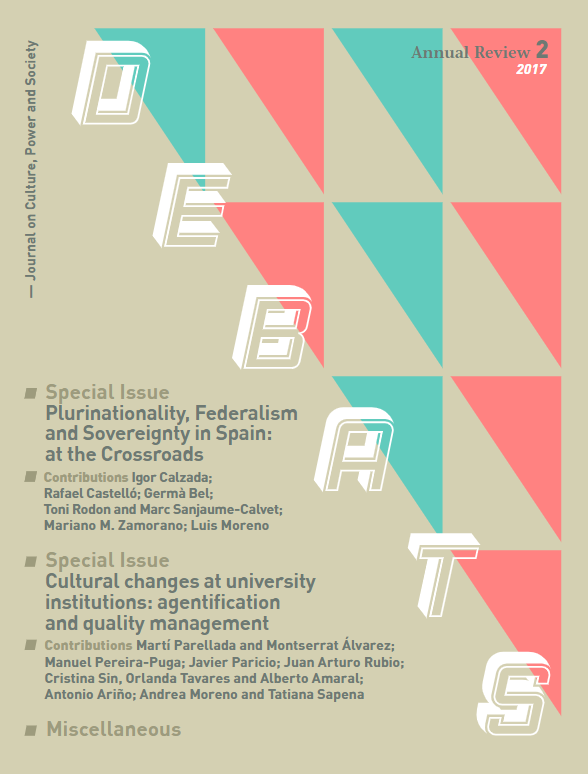Expert‑panel accreditation evaluation‑practices: an autoethnographic case study of the Community of Madrid
Resumen
Accreditation is defined by the European Higher Education Area quality‑assurance agencies as a key element in quality management and continuous improvement in university teaching‑learning processes, and is an institutional practice that started to be developed in 2014 in Spain. This article illustrates the case of the Community of Madrid Quality Agency, as case study analysis through my experience as a panel member for the accreditation of higher‑education qualifications. Methodologically, it is based on an autoethnographic approach and uses the theory of symbolic interactionism to reveal and analyse the evaluative process and culture. For this purpose, two analytical axes were drawn: student learning‑outcomes and the value of the human resources assigned to the degree in terms of their academic research, both criteria which the quality agencies consider to be critical for a favourable final report. The interactions of the expert panel at the different stages of the accreditation consideration‑process, based on these two criteria, are presented with the aim that future case studies will test them in the context of collaborative learning, helping to achieve the greatest possible academic rigor in the accreditation process.Descargas
Descargas
Publicado
Cómo citar
Número
Sección
Licencia
Sin perjuicio de lo dispuesto en el artículo 52 de la Ley 22/1987 de 11 de noviembre de Propiedad Intelectual, BOE del 17 de noviembre de 1987, y conforme al mismo, los autores o autoras ceden a título gratuito sus derechos de edición, publicación, distribución y venta sobre el artículo, para que sea publicado en Debats. Revista de cultura, poder y sociedad.
Debats. Revista de cultura, poder y sociedad se publica bajo el sistema de licencias Creative Commons según la modalidad «Reconocimiento - NoComercial (by-nc): Se permite la generación de obras derivadas siempre que no se haga un uso comercial. Tampoco se puede utilizar la obra original con finalidades comerciales».
Así, cuando el autor o autora envía su colaboración, acepta explícitamente esta cesión de derechos de edición y de publicación. Igualmente autoriza a Debats. Revista de cultura, poder y sociedad, la inclusión de su trabajo en un fascículo de la revista para que se pueda distribuir y vender.











